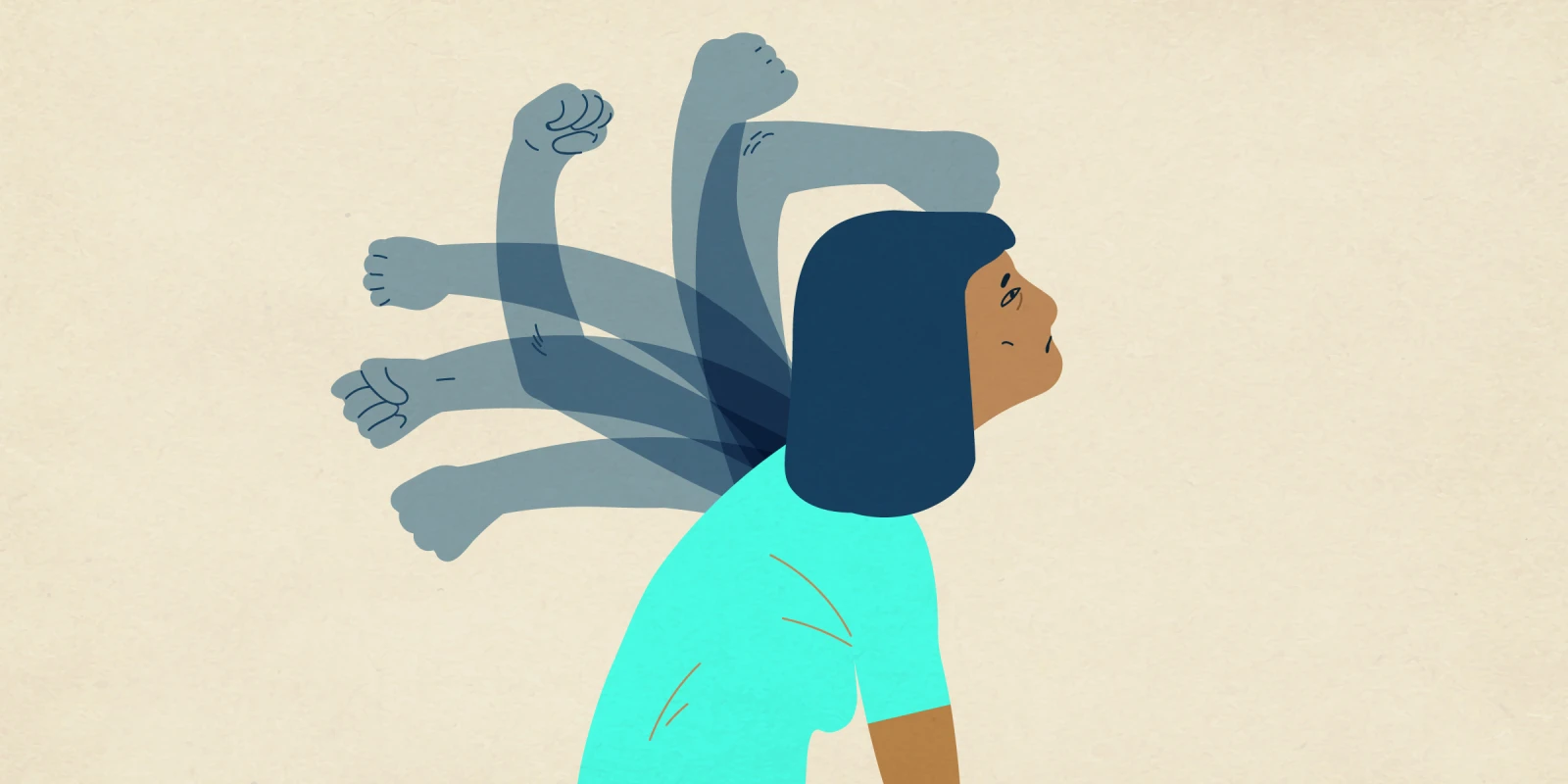There are three types of suffering we encounter as doctors: the suffering inflicted by medical illness, the suffering inflicted for a patient’s own good, and the suffering inflicted by our mistakes.
Most of us join the medical field because we want to make a difference. Witnessing suffering from medical illness is what motivates us and bestows a sense of purpose. It is inexplicably rewarding to impact a patient’s life. At times, however, we are not able to save them from suffering. Repeatedly witnessing this can become impossible to handle. During my intern year as a resident, I worked for weeks with a gnawing and impending sense of doom that I later realized was precipitated by watching a young man with AIDS slowly die in front of my eyes. I could not sleep when a woman — two weeks out from her diagnosis — bled onto her white hospital sheets as she died violently from breast cancer. I cried alongside my patient when I told him his cancer had relapsed. Throughout the year, I succumbed to compassion fatigue, losing some degree of empathy for these experiences. In psychiatric terms, this is called “emotional numbing,” and occurs commonly in acute stress disorder and PTSD.
Unfortunately, there are levels to the trauma that medical professionals experience. When we inflict suffering for our patients’ own good, they are often resistant and angry. This suffering includes, but is not limited to, putting in life-saving lines, prodding for blood early in the morning, refusing to let patients eat, or withholding pain medication and anxiolytics for safety reasons. I have had reasonable conversations with patients who responded with profanity, threats of legal action, and — in some cases — physical violence. When confronted like this by an angry patient, it can feel like our jobs are thankless. I once had a patient tell me, “you are my least favorite person on earth.” Those words still haunt me. Immediately after this experience, I realized that I was limiting my encounters with patients to avoid having to hear something like that again. In acute stress disorder and PTSD, psychiatrists call this “avoidance.”
The third form of suffering we witness is when we mess up. Especially as resident physicians still in training, these mistakes sting and challenge our self-worth. Once, I accidentally placed a feeding tube into the lung of an encephalopathic patient. Luckily, the patient was fine, but since then, any time I placed a feeding tube, I relived this memory. One patient I cared for died the day after I discharged him from the hospital. I wondered for the next few weeks if each patient I discharged would come back to the ED in cardiac arrest. In psychiatric terms, these are called intrusion symptoms. Put simply, we relive distressing and intrusive memories of mistakes. Strangely, intrusion symptoms can manifest physically: the second time I placed a feeding tube, I fainted. Speaking from personal experience, dissociation can be one of the most distressing manifestations of intrusion, whereby one feels they are no longer inhabiting their own body.
As a profession, we need to do a better job of acknowledging that displeasing patients and causing unintentional harm is a normal consequence of our jobs, and not caused by personal defects. When we neglect to do this, routine experiences throughout our day become traumatic. We may not realize the trauma of specific incidents because those who experience trauma can have what psychiatrists call “delayed expression.” We become irritable, withdrawn, and anxious. For those physicians predisposed to mental illness, it can be especially tough. While operating under the grueling grind of internship, the repetitive trauma of my job propelled me into a crippling depression. “I made a mistake,” or “this person hates me,” translated to “I am unworthy of this job,” and “I am a failure.” Imposter syndrome festers in the background. The expectation is that we are superhuman; there is no room to struggle mentally. We are told to work 24-hour shifts without a break but somehow have time to care for ourselves, stay hydrated and fed, be nice to consultants, and handle it all with grace. Yes, it is impossible, yet it seems everyone else is performing these impossible feats.
Not acknowledging this trauma is one of the reasons why depression is so rampant among young doctors. Our system is broken. Doctors have the highest suicide rate of any profession. I wonder about the effects of trauma on physicians who, like me, already have underlying depression, anxiety, and mood disorders. These are the same individuals who may not feel comfortable seeking help due to fear of repercussions. So, what is the solution?
The stigma needs to stop. It is normal to experience the effects of trauma. Every physician should be allowed time off to attend therapy and seek medical evaluation. Institutions should have therapists available who specialize in medical trauma. As well, should be acceptable to take a break, to not know all the answers, and to mess up once in a while. These are normal reactions. If you are a physician or trainee and are struggling, please ask for the accommodations you need. There is no shame in that.
Dr. Kumar is a neurologist, singer, writer, and mental health advocate based in Cleveland. She is currently a PGY2 neurology resident at Case Western Reserve/ University Hospitals Cleveland Medical Center.
Image by GoodStudio / Shutterstock





